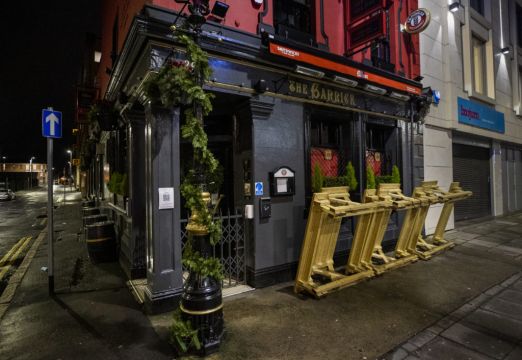More than one in 10 employees were on furlough in Northern Ireland at the end of last year, official statistics show.
Close to half were employed in accommodation provision, food service, or wholesale and retail, according to data from the tax authority of the UK government, Her Majesty's Revenue and Customs (HMRC).
The lockdown on all non-essential retail began straight after Christmas.
Who's furloughed? Analysis of new furlough statistics for Northern Ireland https://t.co/vGJpoDucWt pic.twitter.com/UlV3OO3zvn
— Dr Lisa Wilson (@LisaWilsonNERI) January 28, 2021
Advertisement
Dr Lisa Wilson, senior economist at the left-leaning Nevin Economic Research Institute, said: “The number of employees on the Coronavirus Job Retention Scheme on December 31st in Northern Ireland was just shy of 95,000.
“This equates to about 12 per cent of all employees – indicating just how important the job retention scheme has been at protecting the incomes of a significant proportion of workers through the crisis – and serving as a stark reminder that the security and protection provided by the scheme is the only reason that we have not seen a tidal-wave increase in unemployment.”
She said there had been a number of “step-change” increases in the total number of employees furloughed since the low point of 65,000 at the end of September, and the return to lockdowns.
Increased poverty
It comes as a senior trade unionist has warned that Northern Ireland should be braced for increased poverty once the pandemic is over.
The longer low-paid workers are furloughed the less likely their jobs are to exist at the other end of it, Owen Reidy added.
The Irish Congress of Trade Unions (ICTU) assistant general secretary called for Stormont ministers to create a 10-year plan to steer the recovery.
He added: “There will be a lot of collateral damage to people without jobs to go back to. I am concerned about the increased poverty that will create.
There needs to be a lot of consideration and thought about where we go from here
“It makes it more important for the Executive and Minister for the Economy (Diane Dodds) to start to think wider in terms of what we do.”
Last year the minister published a medium term economic recovery plan covering the next 12 to 18 months. She has announced the membership of an 11-member economic advisory group.
Mr Reidy said the economy had been set back years by coronavirus restrictions.
“The longer this goes on the more jobs will be in danger.”
He said early hopes the economy could be put into cold storage then thawed out again and restarted as it was were looking more forlorn.
The senior trade unionist said planning needed to be for the next decade rather than just the next electoral cycle.
“What is the vision, what do we want the economy to look like and how do we build that economy that works for all?”

Mr Reidy said 85 per cent of the hospitality workers who are most likely to be furloughed earned below the real living wage.
Northern Ireland has the highest proportion of low-paid workers in the UK.
“There needs to be a lot of consideration and thought about where we go from here. A crisis does create an opportunity to start to think the unthinkable.”







